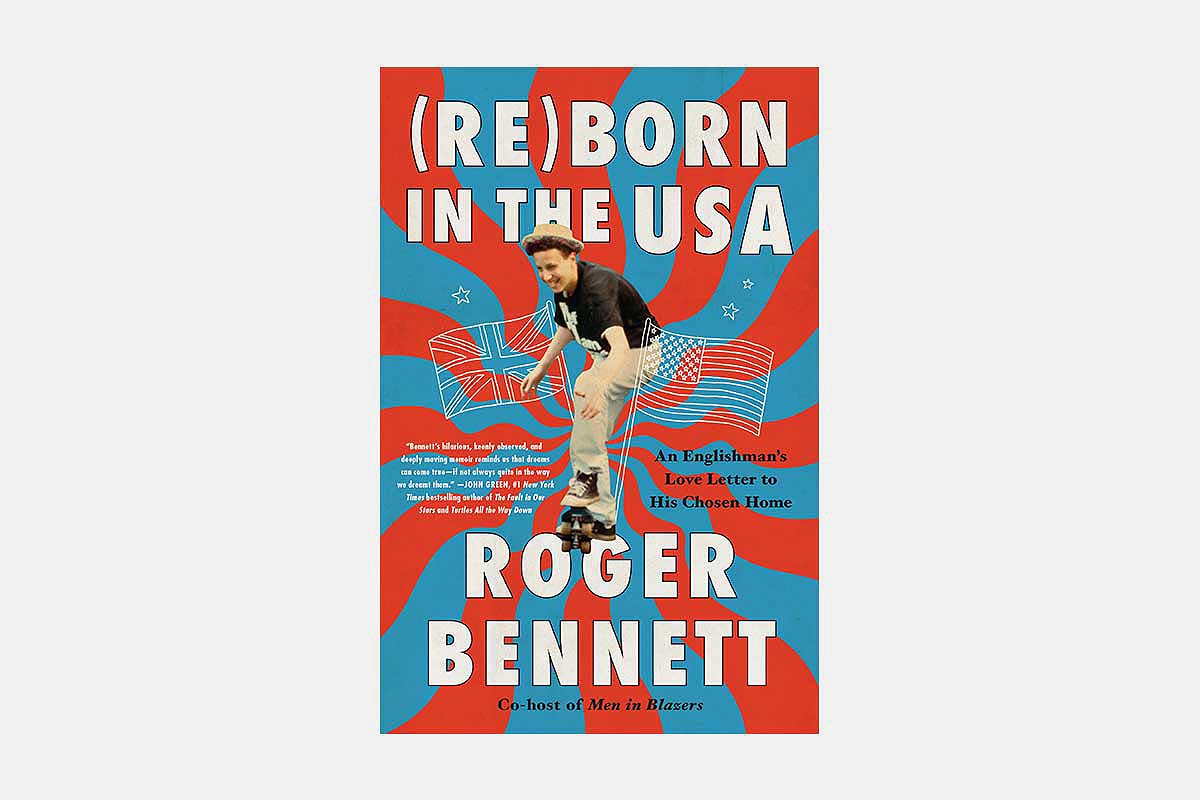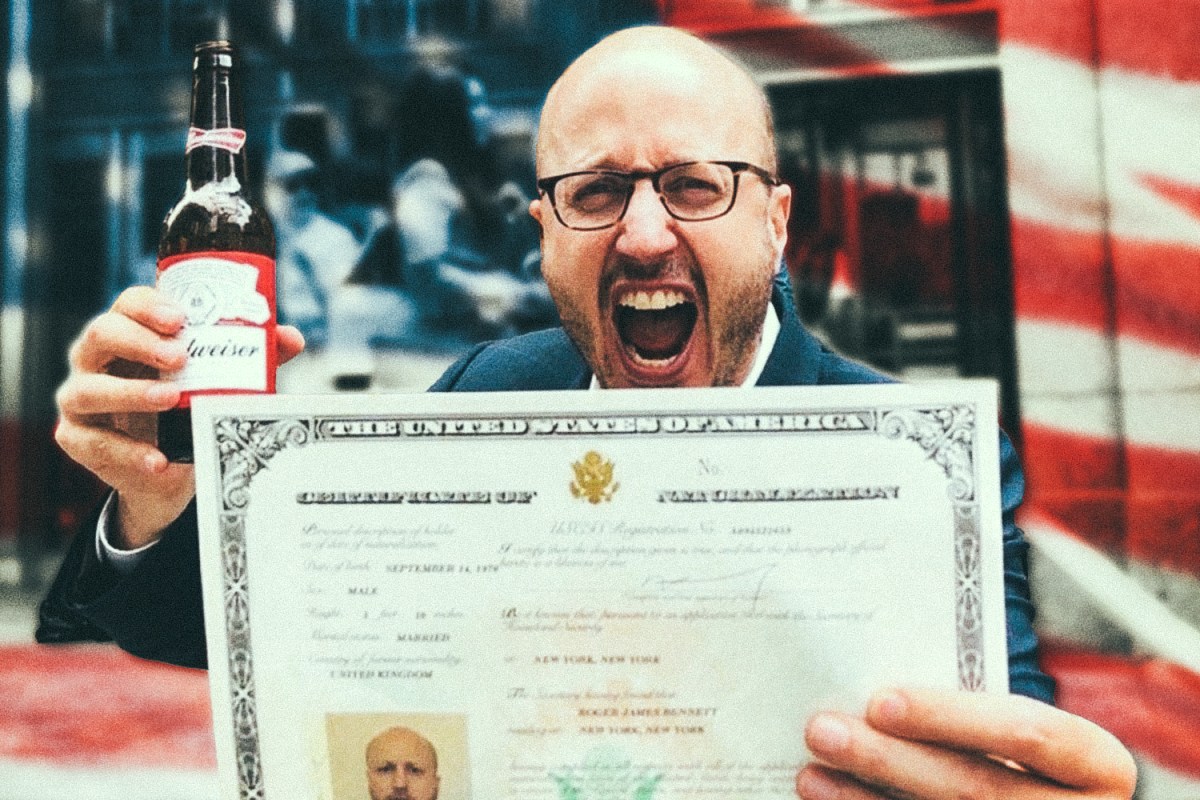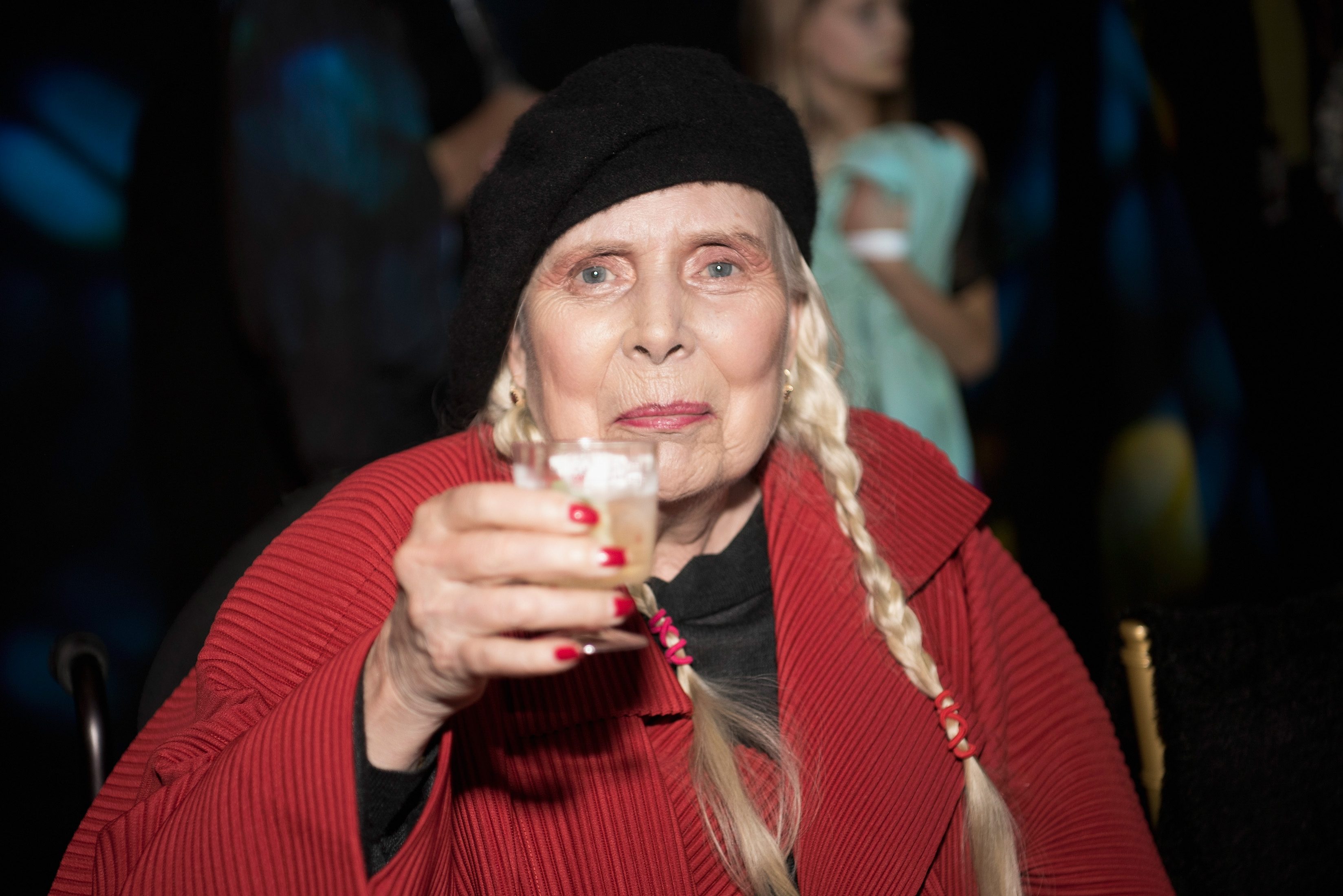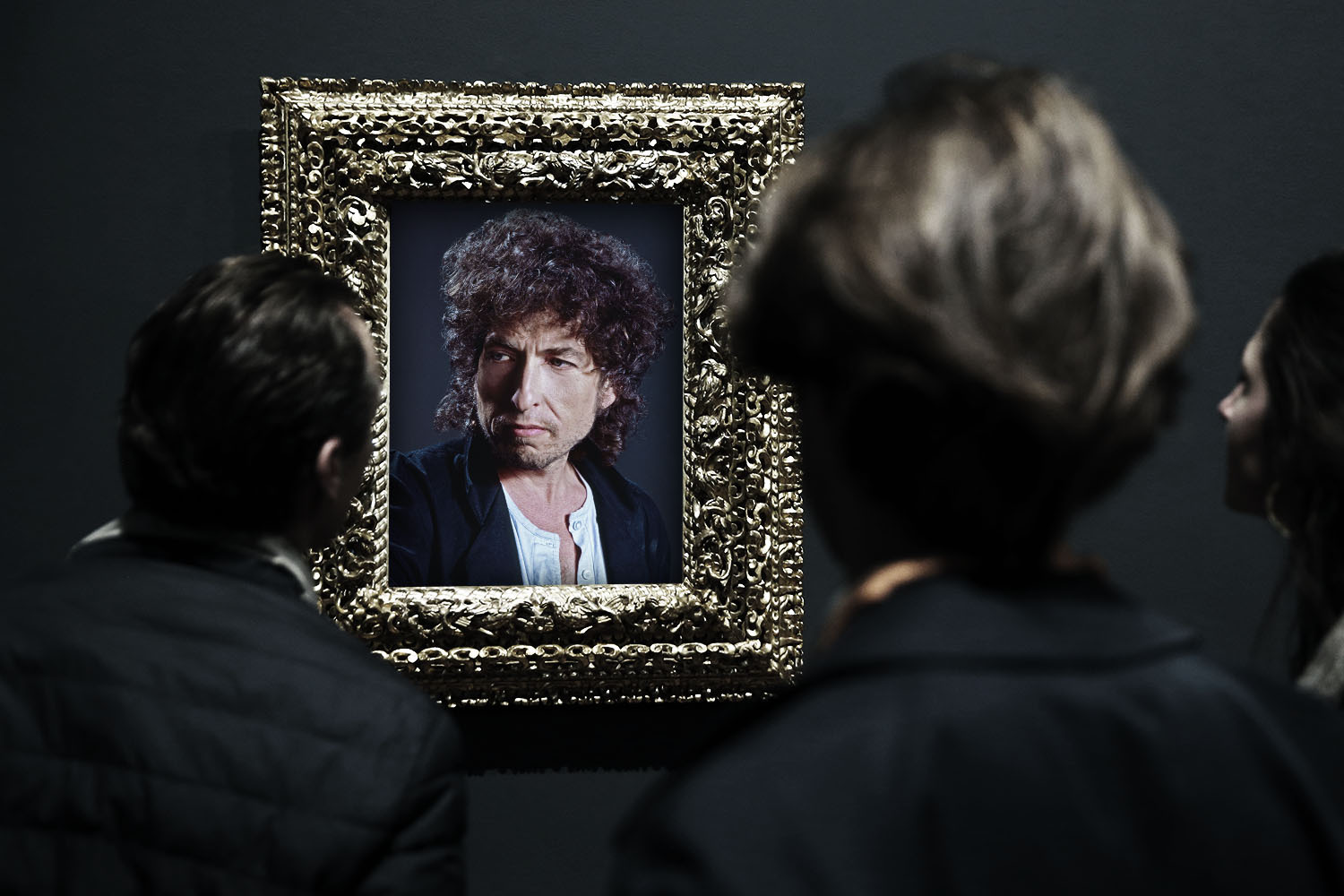Roger Bennett was born and raised in Liverpool, but the home of the Beatles never quite captured his imagination. His teenage years were spent in a dying industrial city, at a private school where discipline was harsh and girls were absent (for the most part).
So of course he looked across the ocean for inspiration and hope. He consumed Miami Vice, The Breakfast Club and the Beastie Boys. He liked football (soccer), but fell in love with the NFL and the 1985 Chicago Bears. And a summer spent in Chicago left an indelible mark — he was always destined to leave England and move here.
Which he eventually did, and (spoiler alert) eventually became an American citizen. But Bennett — one-half of Men In Blazers, the wildly informative and entertaining TV show/podcast about soccer — spends most of his new book (Re)born in the USA not celebrating his current success, but describing his funny, awkward and ultimately uplifting teenage years, the time period where he fell in love with a country he’d never set foot in.
It’s been a rough few years for the USA. Bennett acknowledges it, but his enthusiasm for our country — as well as sports, and even a Tuesday afternoon Zoom interview — will reignite your patriotism, and also your love of License to Ill.
“I’m at your service,” says Bennett, appearing on my computer screen. “Let’s rock it!”
InsideHook: Did you write Reborn during COVID?
Roger Bennett: I wanted to write this book as long as I’ve been in America. It was one of those big lofty ambitions you never get around to. At the beginning of COVID, sports stopped — and that’s my lifeblood! I always joke about sports, that it allows me to feel things like joy, defeat, victory and astonishment, feelings that most human beings feel in real life. With sports gone, I was in a vacuum. And nature abhors a vacuum.
And watching what was going on in America at that time, it was an interesting year of chaos. The one orgainzing idea in my life has been America. When I was growing up, it was a challenging time for Britain. I told myself I was an American trapped in an Englishman’s body. I loved America — loved the books, the movies, the television, the music, the occasional knockoff pair of Ray-Bans. For me it was a taste of optimism and hope and possibility. Liverpool was in black and white, and America felt like Technicolor.
But last year, watching America in a moment of deep challenge, I returned to that America I dreamed of as a kid, the one I did move to and build a life in. And so I wrote this in lockdown.

You paint Liverpool in the ’80s as a very bleak place. Has that changed?
It’s an unbelievable city to be from! I named several of my kids after Liverpool neighborhoods. I’m so proud to be from there. It’s such a singular place. Per acre, you’ll find the world’s most storytellers, jokers, comedians, dreamers and all packed into one place.
But in the ’80s, it was a dark time, Thatcher demonized the north, there was economic turmoil and our city was an industrial carcass. There was very little hope. We had music and football.
But today, it’s kind of like Baltimore: it’s rediscovered itself. It’s actually a club mecca. It’s an ebullient city, transformed. When my kids visit, they think it’s like Disneyland. I’m so proud to be from there — and it always felt deeply American. Everything from America hit Liverpool first. I wasn’t alone looking out across the Atlantic, thinking I was an American even though I never had set foot there.
Do you keep in contact with the people from your school years?
The one teacher I mention, Mr. McNally, he’s in many ways the hero of the book. I grew up in an English public school setting — it was a private school, but calling it public throws off Americans — and it was like Grey Gardens. It was a throwback to the 1930s, when Britain still had an empire and children should be seen but not heard. And canings were commonplace.
At our school … you know Statler and Waldorf from The Muppets? That was all of my teachers, so I never found that funny. But this one guy, Mr. McNally, he was empathetic and allowed us to talk about our feelings and realize there were other possibilities out there; he had come to America as an 18-year old and lived on Cape Cod. He always talked about seeing Joni Mitchell play live. He saved me. Sadly, he passed away years ago — I hope this is a way his legacy won’t be forgotten. I think we all have a Mr. McNally in our lives.
In the book, your obsession with the 1985 Chicago Bears is kind of a catalyst for your eventual embrace of American football and America itself. Since you’ve moved here, has any team caught your eye like that?
To this day, it’s the Chicago Bears, who impart a wonderful source of sporting hope. And by that, I mean false hope. The Bears are ingrained in my psyche. I also love the White Sox, having gone to see them when I was 16. I guess as far as teams I’ve embraced since moving here … the Washington Capitals? The NHL is like the Premiere League with the volume and speed turned up to 11. And now I work with the NHL with Men in Blazers on Ice, and I get to talk to the stars of the game. It’s wonderful, and another thing I do not take for granted. It’s one of the wonders for me about America — that you let bald men like me on television.
Is there any sport you don’t like?
I adore all sports! It’s like a Mexican telenovela played live without a net and the world watching. I would watch two horses kicking around a football in a field, mesmerized. But what I adore about sports is the human decision making; these are world-class athletes and elite human beings living out their dreams under the crucible of pressure. It’s the human drama I relate to. The writer Albert Camus, fantastic goalkeeper as a kid, there’s this quote attributed to him: “Everything I know about the morality of men I learned through football.” I feel that about all sports.
Had you seen anything like what happened to Denmark’s Christian Eriksen [who suffered cardiac arrest while competing at the European Championship] the other week?
Yes, unfortunately, but this was particularly remarkable, because the whole world was watching. We watch sports as a diversion, an act of cognitive dissonance, to stop thinking about human frailty. He’s been on our show; he’s not only a beloved elite athlete, but also a most thoughtful and creative human being. Watching that was 10 minutes of agony. And the cameras were deeply invasive. Thank god he survived. That was a collective horror shared around the world.
How can the U.S. men’s soccer team get to the next level?
Be half as good as our women! The reality is they are well on their way. I always joke on our show that soccer is the sport of the future in America, as it has been since 1972. The one mistake Americans make, they think, “We’re gonna be good at soccer tomorrow!” Like it’s a fad — it’s the Rubik’s Cube or pogo stick. We’re just gonna sweep the nation! The thing is, it’s hyper-competitive and the rest of the world has been playing it for centuries. It takes time!
What has occurred in the last 10 years is that America’s best young players are able and willing to go abroad and learn from the best — which is hard for Americans to fathom, because we’re number one. The best is played in England, Italy, Spain, France … but you’ll now have someone like Christian Pulisic leave here at 16, go overseas, learn German and learn the game. The mentality is different over there, but we’re grinding through it. It used to be remarkable when one of us played against Barcelona, and now we have Americans starting for teams like that. The talent pool has never been deeper and more gifted. I dream of an America where we’re lifting the World Cup.
Your podcast and your appearances on other sports shows make me care about soccer, which is new. What are some sports journalists and shows that inspire you?
I really really like Mina Kimes — she is so talented, intelligent, and emotionally intelligent. And she works so bloody hard. Bob Ley [formerly of ESPN], he was a pioneer. He had such passion for soccer here before anyone cared. Miguel Delaney of The Independent — football is a hard subject to cover. It’s a mirror that reflects the world around it. He does an incredible job of covering football as football, but also blending in geopolitics and economics. And Simon Kuper of the Financial Times. He covers football in a way, when two teams take the field, for him it’s the histories of those two nations taking the field alongside them.
What’s the soccer/football equivalent to my lowly New York Jets?
Welcome to Everton, Kirk! I am born and bred, third-generation Everton-ian. They’re like the Mets, too. After every loss, I play Tracy Chapman’s debut album; that album saved me in dark times. It telescoped to me a place of wonder. So after every Everton loss, just as a reminder of how sad I am, my lord, so terribly deflated, Tracy Chapman’s world is always more challenging.
Speaking of which, your Wikipedia page ends with this description: “He is fond of Tracy Chapman and tweed.”
I have no idea where that comes from! They don’t have a lot right on that page, including my birthday. But I want that on my tombstone. Between those two things, you have all of life’s emotions.
The Charge will help you move better, think clearer and stay in the game longer. Subscribe to our wellness newsletter today.
























